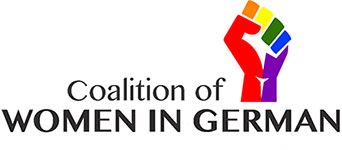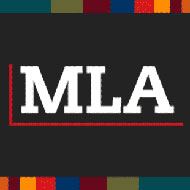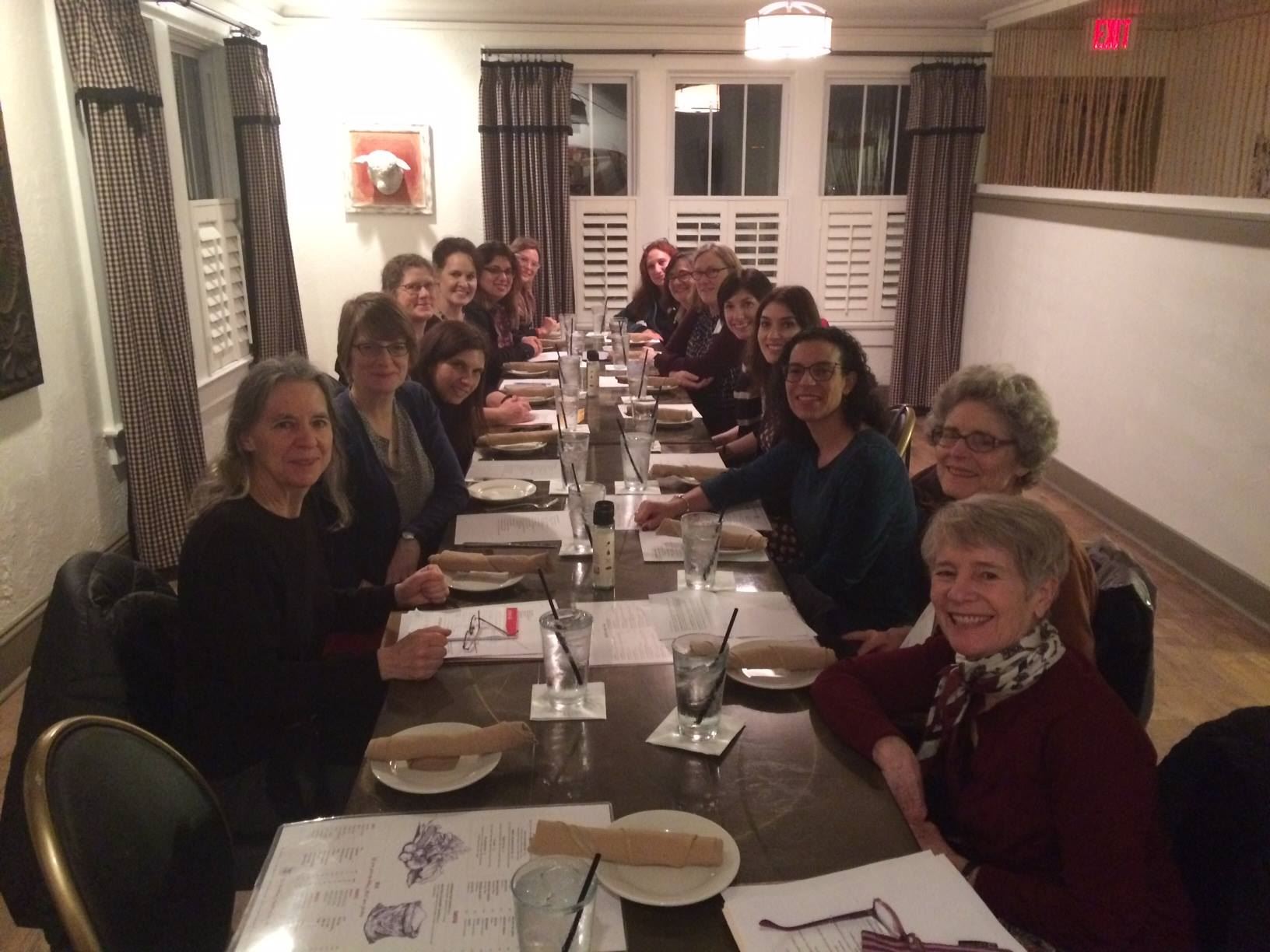 | Women in French |
History
The First Twenty-Five Years
Because most members discovered Women in French, after our affiliation with the MLA, it seemed useful to search out some information on the early years, even those of us involved with WIF before the 1990s have much to learn — or to remember.
If anyone can fill in more details, especially concerning the 1980s, please contact Annabelle Rea, who will see that a more complete version of this WIF history gets posted on the web site.
[Mid-December 2002: No further information has been received, but any input remains welcome.]
Thanks to the good memory of WIF Nominating Committee Chair and Undergraduate Essay Co-Chair, Lucy Schwartz, and to detective work in a regional telephone directory by Cynthia Hahn, we tracked down Lucy Morros, WIF founder and later Co-Chair with Jean Hardy Robinson. Lucy Morros has written the following summary of the years 1977-1980.
« Women in French »: Inspired by Women in German in 1977
 With a PhD in French from Washington University in St. Louis, Lucy Schmitz Morros was invited by Women in German to their 1977 conference at Miami of Ohio. There, she spoke about the impact of German thought and culture on Madame de Staël's thinking about women. The intensity of the discussions about literature and the relationships of the women in German inspired Lucy to proclaim, in dramatic French style, that she would seek to found a similar national group for Women in French. The integrated nature of the intellectual work, the collective strength of Women in German and the communication structure of their group were an inspiration. She was sure that Women in French would be attracted to developing a similar organization.
With a PhD in French from Washington University in St. Louis, Lucy Schmitz Morros was invited by Women in German to their 1977 conference at Miami of Ohio. There, she spoke about the impact of German thought and culture on Madame de Staël's thinking about women. The intensity of the discussions about literature and the relationships of the women in German inspired Lucy to proclaim, in dramatic French style, that she would seek to found a similar national group for Women in French. The integrated nature of the intellectual work, the collective strength of Women in German and the communication structure of their group were an inspiration. She was sure that Women in French would be attracted to developing a similar organization.
Women in French: Created at and Formally Connected to the MLA in 1978
An energetic group of several dozen women in French met at the MLA in 1978 to discuss the project of establishing Women in French. The general consensus was that the creation of Women in French would:
- Draw attention to the academic work of Women in French
- Provide a structure that would support women’s networking and collaboration in French studies
- Help women secure employment in a difficult academic marketplace produced by a recession
- Connect women intellectually and socially
- Promote women’s growth and impact within higher education settings by welcoming women’s leadership in departments, divisions, and the university hierarchy
Connection to the MLA
 The Women’s Caucus for the MLA was drawing women from each of the disciplines to its sessions at national and regional conferences. Although the focus was on women writers in English, the sense of discovery that characterized many sessions encouraged the inclusion of works in translation.
The Women’s Caucus for the MLA was drawing women from each of the disciplines to its sessions at national and regional conferences. Although the focus was on women writers in English, the sense of discovery that characterized many sessions encouraged the inclusion of works in translation.
Women in French was initially a sub-committee of the Women’s Caucus for the MLA. Jean Hardy Robinson, PhD in French, the University of Kansas at Lawrence, and Lucy Schmitz Morros, PhD in French, Washington University in St. Louis, became Co-Chairs of Women in French and served from 1978-1980.
Principal Work Accomplished During the First Years of WIF
The early years of WIF were focused on getting to know who we were and sharing our research topics. Our activity included:
- Publishing the first National Women in French Directory in 1979
- Developing Women in French sections within larger national conference structures
- Implementing WIF sections at the MLA conferences in Chicago, New York, and San Francisco
- Implementing a WIF section at the National Women’s Studies Association conferences at the University of Indiana and the University of Kansas at Lawrence, and
- Supporting Christiane Makward’s Bulletin de Recherches Féministes Francophones(BREFF) by encouraging members to give subscriptions to their campus libraries, as well as subscribing themselves
As an Allied Organization, WIF held its first Business Meeting at the 1991 MLA in San Francisco, celebrating its new status — and perhaps seducing more new members! — with a free continental breakfast offered to attendees. By February of 1992, WIF membership had reached 300, doubling within a few months. Six months later, it had climbed to well over 400. Mary Anne Garnett assumed the editorship of the Newsletter in 1991 and continued for five years, setting the high standards that succeeding editors (Joëlle Vitiello, Catherine Slawy-Sutton, Juliette Rogers, Judy Schaneman, and Marianne Golding) have maintained. By 1992, each issue of the Newsletter contained an annotated bibliography . Regular WIF sessions, two each year, began with the 1992 Annual Meeting of the MLA. WIF also obtained allied status with all of the regional MLAs that have such a category. With Nicole Meyer taking the lead, the Midwest MLA was the first to recognize the association in this way.
Annabelle Rea, WIF Chair from 1990-1995, edited the first volume of WIF Studies in the summer of 1993, with the help of Janis Glasgow and Mary Test, before turning the publication over to newly-elected Vice-Chair, Colette Trout. Colette formed the first Editorial Board, selecting Adele King, Marie-Pierre Le Hir, and Mary Rice-DeFosse to assist her. With the Board, she set forth the criteria for peer evaluation of blind submissions and put into place the important Graduate Essay Award voted by the membership. Colette and her board worked particularly hard to provide feedback to those who submitted articles for consideration, especially with their very supportive mentoring of graduate students. Through the work of the editorial team, submissions to WIF Studies grew, allowing greater selectivity in articles, increased competitiveness for the graduate award, and new rubrics, such as reviews. When Colette became Chair of WIF in December 1995 and Adele King assumed the editorship of WIF Studies, the position now so ably filled by Frédérique Chevillot, Colette remained for three years as Managing Editor. Many members of WIF, as Editorial Board members or authors, have contributed to the success of this fine journal of which we can all be very proud.
During the 1990s, many others dedicated their time to WIF activities: Catherine Montfort created the WIF Listserv, Kathryn Murphy-Judy, the first WIF web site, Joëlle Vitiello edited the second Membership Directory, Christine Lac the third, and Barbara Klaw took on the difficult task of keeping track of members as Treasurer, a position she filled, heroically, for five years. The Undergraduate Essay Prize was established in 1994, with Sylvie Rockmore and Lucy Schwartz as Co-Chairs. Colette Trout pursued WIF’s application for tax-exempt status through to successful completion.
Little needs to be said at this point about more recent WIF history because most members are quite aware of developments in the past few years — greater collaboration with WIF-UK; connections with sister publications in France, such as Lunes and Nouvelles Questions Féministes; internships with the Bibliothèque Marguerite Durand; the tremendous growth of WIF participation in conferences organized by the regional MLAs, the CIEF, the AATF, and so forth.
Annabelle Rea, WIF Chair, 1990-1995
For the history of WIF international conferences, visit our Conference page.
